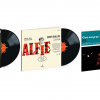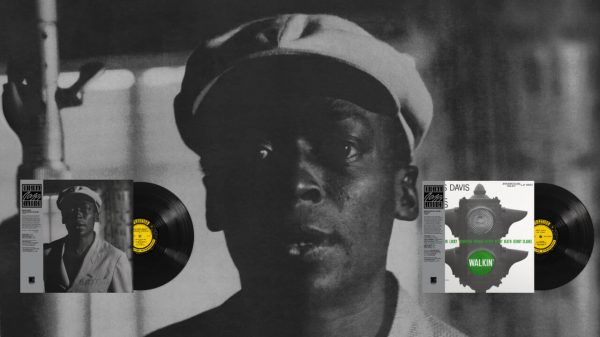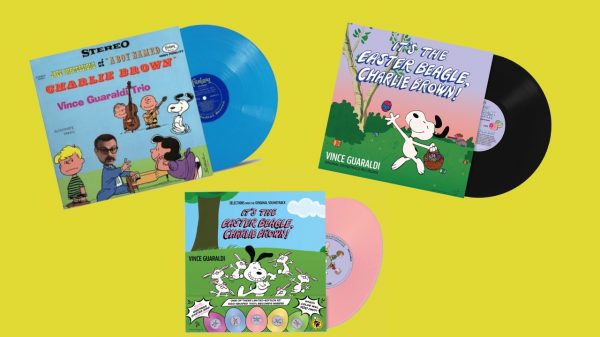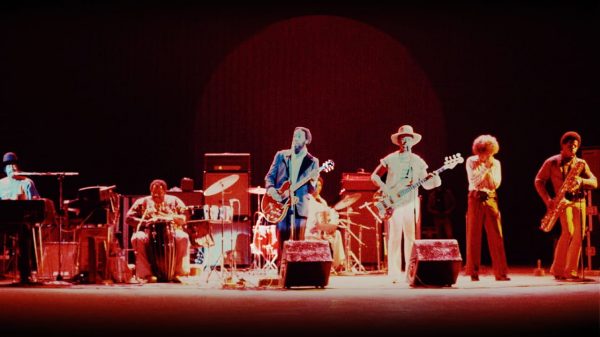What’s the hottest area of investment in the music business? Take a guess—maybe Broadway shows or jazz nightclubs or vintage guitars?
Okay, those were jokes. You already know not to buy a jazz nightclub, unless you’re looking for a write-off. As for Broadway shows, even before the pandemic, 80% of them never recovered their initial investments. And, whatever you do, don’t start a record label. Despite the touted growth in streaming subscriptions, recorded music revenues in the U.S. are still well below levels achieved in 1999.
How many other industries are smaller now than they were in the last century? Not many, but the record business is one them, and a sizable portion of the revenues it generates somehow ends up in the coffers of tech companies such as Apple or Google or Spotify. Here’s my heretical opinion: I don’t think a sale should count as music business if the cash disappears into Apple’s $200 billion bank account—but that’s a discussion for another day.
More to the point: there’s one hot area in music that gets savvy financial investors excited, and only one—old songs. And the older the better. Here are some of the largest recent deals in the music industry:
- Bob Dylan sells his entire song catalog to Universal Music for an estimated $400 million
- Paul Simon sells his publishing rights to Sony for $250 million
- The Beach Boys sell controlling interest in their publishing, recordings and brand licenses to Iconic Artists Group for an undisclosed amount
- Neil Young sells 50% of his publishing rights to the Hipgnosis investment fund for an estimated $150 million
- Stevie Nicks sells 80% of her songwriting catalog to Primary Wave for an estimated $100 million)
- David Crosby sells his song catalog to Iconic Artists Group for an undisclosed amount

Just reading that list makes me feel so young, like spring has sprung. All of those artists are considerably older than me. So much for the conventional wisdom that the music business is a young person’s game. Not anymore.
Singers collecting Social Security couldn’t be hotter right now. You might think that music apps are attracting investment capital, but no. The same goes for AI in music. I’ve seen a few startups find venture capital, but they are tiny deals compared with these song catalog transactions. The largest I’ve noticed is LANDR, a Canadian startup with high hopes for AI composing, which brought in $26 million in series B financing—but that doesn’t even buy you a second-rate publishing catalog.
Or, if you judged matters by the buzz, you might assume that non-fungible tokens (NFTs) are the hottest investment in music. But the biggest NFT deal by a musician to date is Grimes’s $6 million sale of artwork and songs—and even that was an aggregate figure. The single biggest purchase in the Grimes sale was $389,000 for a one-of-a-kind music video. (It looks like this.) That’s chump change compared to amounts going to octogenarians for their 50-year-old songs.
The biggest player behind these deals is Hipgnosis, a company with only 41 employees but very deep wallets. Hipgnosis has already acquired 146 song catalogs, and has raised £1.3 billion (~$1.5 Billion USD) to buy more.

Who else is raising a billion dollars to invest in the music business? That’s easy to answer—nobody. Imagine how many young artists you could sign and promote with a billion dollars? But only a fool would do that. Or consider how many nightclubs you could buy with a billion dollars? No takers for that either.
At first glance, this obsession with old songs makes no sense. Songs are a depleting asset, much like oil in the ground. Eventually the copyright expires, and songs enter the public domain—and the older the song and the songwriter, the sooner this will happen. All things being equal, a song by a 20-year-old music star has a much larger potential cash flow, over its lifetime, than a song by an 80-year-old.
You might conclude that savvy investment funds would try to acquire rights to songs that are popular right now, or recently on the charts. And certainly young artists need the money more than already wealthy superstars such as Paul Simon or Bob Dylan, who can’t even begin to spend all the cash they have already accumulated. But I don’t know of a single investment fund focused on new songs. Like wine connoisseurs, they prefer the older vintages.
The sad truth is that songs lose most of their market value long before the copyright expires. Almost no song is worth much after eighty years. Do you doubt me? Consider some of the hottest music acts in the US in the early 1940s—Tommy Dorsey, Glenn Miller, the Andrews Sisters, Jimmy Dorsey, Artie Shaw, etc. How much licensing income do you think their songs bring in nowadays?
Let’s get specific. Here is the entire list of number one songs on the Billboard chart during the year 1941:
- Artie Shaw: “Frenesi”
- Glenn Miller: “Song of the Volga Boatmen”
- Jimmy Dorsey: “Amapola”
- Jimmy Dorsey: “My Sister and I”
- Sammy Kay: “Daddy”
- Jimmy Dorsey: “Green Eyes”
- Jimmy Dorsey: “Blue Champagne”
- Freddie Martin: “Piano Concerto in B-flat”
- Glenn Miller: “Chattanooga Choo Choo”
- Glenn Miler: “Elmer’s Tune”
How much licensing income do you think you could extract from that gold mine today? Almost nothing—the gold’s already been mined. If you dig deeper into the subject, you will learn that the only big moneymakers from that whole era are Christmas songs. People will still pay for “White Christmas” (1942) or “Santa Claus is Comin’ to Town” (1934) or “Frosty the Snowman” (1950). In contrast, you might be able to count the streaming numbers for “Elmer’s Tune” on your fingers, with some digits left over. There was a time when it was sung by the candy maker, the baker, the man on the street—not anymore.
I know what Baby Boomers are saying right now. It’s different with our songs. Those rebellious rock hits will never lose their counterculture power, and will still inspire listeners for decades to come. Our songs are the best and brightest, etc. etc.
I wish it were true. But even the singer who told us “rock and roll can never die” finally sold out.
Are you still skeptical? I suggest that you check out sales prices of Elvis memorabilia. No one was bigger than the King back in the day, but today I’d have to explain to a young music fan, who the King was.
I’m reminded of the sad story of the aging Benny Goodman on a plane flight who—so the story goes—tried to impress a young lady sitting next to him. “I was the King of Swing,” says Goodman. The young lady sits puzzled for a moment, then responds: “Where is Swing?”
That’s Elvis’s current situation. Every king’s reign ends sooner or later, and—as with Benny Goodman—you can’t even find their kingdom on a map. For Presley, that time has come. When a rare acetate recording of Elvis Presley was discovered in 2015, some fans thought it would bring in a half million dollars at auction. But the final price was $240,000—plus $60,000 for the auction house. A short time later, The Elvis Shop London, the only UK store focused on Presley memorabilia, closed its doors due to poor demand. Many Elvis items listed on eBay never find buyers.

Where did all the Elvis fans go? Well, you hardly need to be an actuary to answer that question. If you were 16 years old when Presley’s first single hit the chart, you’re in your mid-80s right now. Those fans may still love the King, but they aren’t spending much money on music nowadays—and even that tiny amount will soon fall to zero.
If you apply this way of thinking to the current deals, you’re forced to conclude that Bob Dylan’s hit songs will start losing value long before their copyright expires—with declining cash flow possible in the next 10-15 years. But I know from experience, that investment decisions are heavily influenced by short term cash flows. The most popular techniques for valuing investment decisions, whether payback analysis or discounted cash flow calculations, deliberately assign more weighting to the immediate future.
I note that this runs counter to the actual empirical evidence of the most successful investors—people such as Warren Buffett or Bill Gates who got rich because they held the same assets for thirty years or more. Go look at the Forbes list of the wealthiest people in the world, and you will see that there are no day traders on the list, which is filled instead with people with extremely long-term financial perspectives. Yet the rank and file of investment firms almost always operate with far shorter horizons.
I’ve experienced this myself, as a writer—but on the painful receiving end. Years ago, the head of one of the largest publishing firms in the world told me he wanted to sign me to a contract, but couldn’t justify it because his company only considered the projected returns during the first three years of a book’s life. “I have a hunch that your book will sell for many years to come,” he told me, “but I’m not allowed to take that into account.”
He proved correct. That book—eventually released by another a publisher—came out more than a decade ago, and the sales and royalties are still robust. But the first three years gave little hint of this longevity. As it turned out, there was no decline in sales after year three. Cumulative royalties are now more than five times my initial advance. He could have signed me to a generous contract, and still made a bundle. But the book industry doesn’t look at things that way, and the music business is even more short-term in orientation.
The larger lesson is that no one in the music industry can afford to worry about a ten year time horizon—everybody in the executive suite will probably be in a different job by then, maybe even a different industry.
So old songs will still find buyers. It hardly matters how popular Bob Dylan, the Beach Boys, Paul Simon and Neil Young will be in another ten or fifteen years. The bottom line is that they are hot properties right now, with fans who will stick around at least a few more months or years.
You’re wondering where this leaves all the younger musicians. Rest assured, we need shed no tears for them. They are also signing lucrative deals. But many of those transactions have little to do with music. Consider Kanye West, the richest musician on the latest Forbes list. He is worth $2 billion and his annual income is estimated at $170 million—but the biggest contributor to Kanye’s financial well-being is his Yeezy branded shoes for Adidas. Or consider Ariana Grande’s perfume business or Rihanna’s cosmetics and lingerie brands. Last year Katy Perry brought in $38.5 million, but most of it came from being a judge on American Idol. Do the math, and you will conclude that musicians under the age of 60 who want to move up the Forbes list need to think beyond music. The songs alone just aren’t enough.
Here’s the bottom line. Old musicians can still build their financial fortunes on their songs—at least for a few years more. Younger musicians, in contrast, need to turn themselves into brands, and pursue a range of licensing deals.
There’s a huge difference between those two strategies. Is it better to be a songwriter or a multidimensional brand? I’ll take the song side of the business any day, but I’m thinking with my heart, not my wallet. If I put emotions aside, I can already predict which of those two career strategies will prevail over the long run.
I’ll cut to the chase: Old songs are hot right now. But they won’t be for long. The future of the music business is in fashion, make-up, booze, shoes—almost anything except the music itself. If you’re looking for the next Dylan, you are advised to forget about songs entirely. See who has the best side deals, because the sides are now the main course.
And when the youngsters of today get old, and decide to cash out, they won’t be selling song catalogs. They will be peddling a portfolio of licensing deals. And I’m confident there will be no shortage of bidders.
Ted Gioia is a leading music writer, and author of eleven books including The History of Jazz and Music: A Subversive History. This article originally appeared on his Substack column and newsletter The Honest Broker.
















































ORT
July 16, 2022 at 12:52 am
I would guess that the relative worth of the music is what determines the market price.
What passes for “music” these days is naught but gas. FTN.
ORT